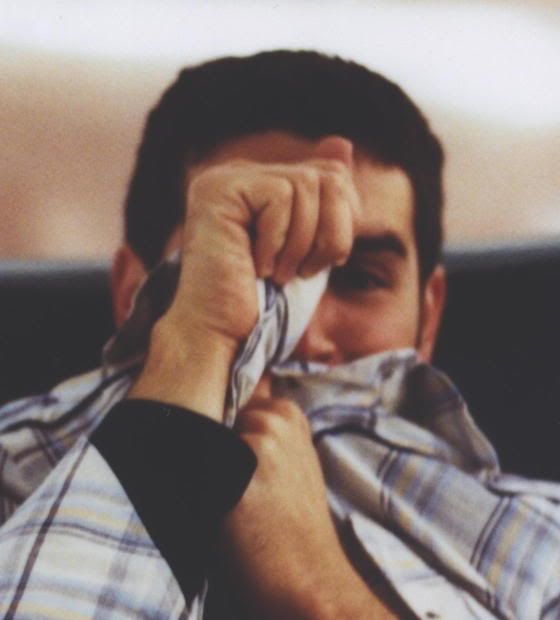Tuesday, May 03, 2005
film study: Nobody Knows

Calla Maria and I blew off some of the finals steam by going to the movies.
We got more than we bargained for. :)
It took a good night's rest for it to really sink in, but we've learned several things:
Movies made in a different culture can't be understood through one's native eyes. Though astounded by the careful attention to beauty in the details, we both had a hard time staying interested during the two and a half hours of quiet observations. But we understood that if they had been speaking English, and if we had an understanding of the silent assumptions about filmmaking they carry on that island and how they differ from our own, we would have been enthralled.
We remembered there was a bridge over this culture gap in an American film shot in Japan a few years ago. We've decided that Lost In Translation was Sofia Coppola's generous attempt to bring the beauty of Japanese culture into a form graspable to Western viewers. (If you have highspeed, go watch this clip to get an idea of why you should see this film as well, and maybe after finals I'll rent it and lots of us can watch it together.) Like the Japanese Nobody Knows, it's full of long, wordless shots and ethereal music, and there is never any real conflict--no antagonist/protagonist showdown or huge moral dilemmas. Two people meet, become friends, respect one another, and learn something. We stare in amazement at the foreign landscape, beautiful and incomprehensible. We laugh at our inability to connect with it. We befriend the characters, respect them, and learn something ourselves.
It's based on a true story--one that made big headlines in Japan in the 80's. The director says, "This headline brought up various questions to my mind. The life of these children couldn't have been only negative. There must have been a richness other than material, based on those moments of understanding, joy, sadness and hope. So I didn't want to show the 'hell' as seen from the outside, but the 'richness' of their life as seen from the inside."
This type of filmmaking is something we need more of in the west. Sit back. Open your eyes. Look for the beauty in everything. This isn't a very pleasant film, though. (How many true stories are?) Four children are abandoned in Tokyo with 10,000 yen to get them through. Their mother sends them letters and some cash once or twice.... They don't fare so well.
The ending is incredible, a testimony to the kind of dirty all our faces get as we're growing up. As the credits rolled, we didn't know what to think. Somewhat saddened, a bit bemused, but strangely encouraged overall.
Then it says, The Mother played by: YOU
We both jumped. Drove away contemplating that final kicker.
Is it hopeful or damning?
These children have no mother, so you--all of you--must care for them now.
...OR...
It's you who is responsible for this sort of suffering. You go through life pleasing yourself, sending your smug little 19 cents a day as if that made any difference. You should know better.
Turns out, the name of the actress who played the mother really is YOU.
In retrospect, such a bold statement seems very out of place in such a carefully NON emotionally manipulative film.
But it was quite a message. :)
The trailer is gorgeous, worth your minute.
Watch it here.
Look at stills here.
Comments:
<< Home
I've wanted to see Nobody Knows. I enjoy this review of it. And how perfect is that business with "You"? Nice. Thanks.
Post a Comment
<< Home

